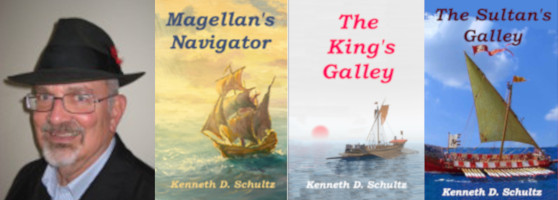Anathem by Neal Stephenson is a difficult book to review and at times to read. It’s a thousand page book. There’s a lot to love in it, but other parts fell flat for me. Here’s my take on it without any major SPOILERS.
The protagonist Erasmus, an avout, lives a monk-like existence in a scientific monastery on a world that is Earth-like, but it isn’t Earth. There is minimal contact between the avout in their monasteries and the secular world. What made it a slog is that the reader must negotiate a plethora of strange English-sounding words. Most these words have a meaning similar to something in English, but it takes a while to figure out just what. Nonetheless, the book intrigued me enough that I kept reading.
Stephenson likes his science. Anathem has more pages devoted to science and mathematics than any sci fi book I’ve read. For me, the many problems in logic and scientific descriptions weren’t necessary for the story and often slowed it down. I’m scientifically oriented, but I found myself skimming over portions.
The narrative picks up in the middle of the book. An alien ship is orbiting the planet. The avout and the seculars join together to deal with this possible threat. As a result, Erasmus finds himself on a quest through the secular world, which he is largely ill equipped to deal with. This middle part of the novel was my favorite.
The last third, which could have been a page-turner, became another slog. The alien ship is evidently from one or more parallel worlds or existences. Page upon page was devoted to discussing this. Enough! Someone studying the many-worlds interpretation of quantum mechanical may find this fascinating. I found it tedious and skimmed over large sections. For me Anathem has too much science. I need character, plot, and a gripping narrative.
Ironically, despite Anathem’s strong rooting in science, I found several unrealistic aspects of the novel, which pulled me from my suspension of disbelief. Most of these revolved around the unrealistic roles of Erasmus and his young colleagues in the last third of the book.
Young Cary, Krin, and Oliver in my Truth-Teller books have an impact on the world around them, but they do it in a credible way. Twenty-one year old Luther in Truth-Teller Revenge does assume leadership of the Jacombers, but he does it in his small, religiously charged community.
For being a logically oriented novel, Anathem has other disconnects. I don’t want to give out SPOILERS, but, among other issues, I don’t think the method of signaling the alien ship would have worked.
Anathem seems written for the YA scientific geek. I’m glad I read it, but I think less science and a more realistic plot would have made it a better novel.
